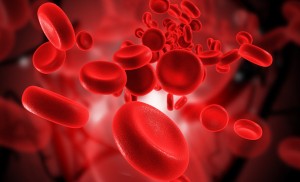0 items - $0.00
No products in the cart.
A deficiency in this particular mineral may be caused by many factors; including poor diet, pregnancy, injury, illness, or even heavy menstruation in women. It is the most common and widespread nutritional deficiency in the world. What is it?
It’s iron. A great majority of the iron-deficient population is made up of infants, children, and young women.
 Why is Iron so Important?
Why is Iron so Important?Iron is essential for the creation of red blood cells and the delivery of oxygen throughout the body. In order for your cells to continue functioning, they need a constant supply of oxygen, which is delivered by the blood stream. A few other other ways your body uses iron are:
How do you know if you’re getting enough iron? While iron levels can fluctuate quickly (especially in young women), it is important to know the signs of a chronic iron deficiency. Many who suffer from anemia due to iron deficiency don’t even know it. Here are a few indicators:
If you recognize some of these warning signs, you may be suffering from an iron deficiency. One way to find out for sure is to visit your physician and request a blood analysis. Even if you’re not severely deficient, boosting your iron intake can improve energy levels, mental focus, and athletic ability.
The average child or adult male needs 8 to 10 mg of iron per day. Women of child-bearing age need 18 mg, and pregnant women need a whopping 27 mg per day. One way to increase your intake is to improve your diet. There are many foods that are rich in iron:
All-natural iron supplements can also be helpful in maintaining sufficient levels of iron. For the T.J. Clark brand, for instance, all nutritional supplements are derived from authentic prehistoric plant deposits. Browse mineral supplements in the Living Clean store or read more about them: